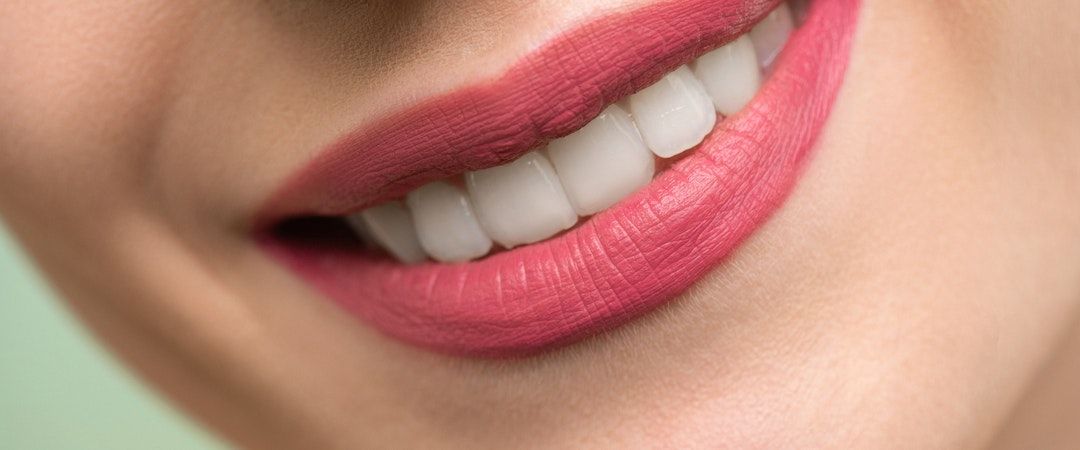Natural Teeth Whitening Eatables: Enhancing Your Smile the Healthy Way
In this blog, we'll explore various foods and practices that can help naturally whiten your teeth.

A bright, gleaming smile can make a significant impact on your overall appearance and self-confidence. Teeth whitening is a common approach to achieving that dazzling smile, but many people are wary of the chemicals and potential side effects associated with commercial teeth whitening products. Fortunately, there are natural and safe alternatives in the form of "teeth-whitening edibles." In this blog, we'll explore various foods and practices that can help naturally whiten your teeth.
The Quest for a Bright Smile
A bright smile has always been a symbol of health and vitality. It's no wonder that many people are constantly in search of ways to enhance the whiteness of their teeth. While commercial teeth-whitening products promise quick results, they often contain harsh chemicals that can lead to tooth sensitivity and enamel erosion. For those seeking a more natural and tooth-friendly approach, certain edibles can contribute to teeth whitening.

Strawberries: Nature's Tooth Whitener
Strawberries, with their vibrant red color and sweet taste, might not seem like a likely candidate for teeth whitening. However, they contain malic acid, which acts as a natural astringent to remove stains from teeth. The vitamin C in strawberries also helps to remove plaque, further improving your smile.
Crunch on Apples: The Dental Detergent
Apples are nature's dental detergents. Their crisp texture and high water content stimulate saliva production, which aids in cleaning teeth. Chewing on apples also helps scrub away surface stains. While apples may not whiten your teeth overnight, they can contribute to a gradual improvement in tooth color.
Munch on Carrots: Nature's Toothbrush
Carrots are not only good for your vision but also for your teeth. Their crunchy texture stimulates the gums and acts as a natural toothbrush, helping to remove food particles and plaque. The natural abrasiveness of carrots can contribute to a brighter smile over time.
Baking Soda: A Gentle Abrasive
Baking soda is a versatile and well-known teeth whitening ingredient. Its gentle abrasive nature can help remove surface stains and plaque. Many toothpaste brands include baking soda in their formulas for this reason. You can create a simple teeth-whitening paste by mixing baking soda with water, applying it to your toothbrush, and brushing as usual.
Activated Charcoal: The Charcoal Trend
Activated charcoal has gained popularity as a natural teeth-whitening remedy. It's highly absorbent and can bind to substances that stain teeth. However, it's essential to use activated charcoal with caution, as its abrasiveness can potentially harm tooth enamel if used excessively.
Dairy Delights: Cheese and Yogurt
Dairy products like cheese and yogurt are rich in calcium and phosphates, which help strengthen tooth enamel. Additionally, cheese, when consumed after other foods, can help neutralize acids in the mouth. This can be particularly beneficial for reducing the risk of tooth decay and maintaining a healthy, bright smile.
Nuts and Seeds: A Natural Scrub
Nuts and seeds, such as almonds and sesame seeds, can act as natural scrubbers for your teeth. Chewing on these foods helps remove surface stains and plaque, contributing to a cleaner, brighter smile!
The Power of Water

Drinking water is one of the simplest and most effective ways to maintain oral health and promote teeth whitening. Water helps rinse away food particles and reduce the acidity in your mouth. It also plays a vital role in saliva production, which is essential for maintaining a healthy oral environment. Staying hydrated can help prevent staining and keep your teeth looking their best.
Green Tea: Nature's Antioxidant
Green tea is not only a popular beverage but also a source of natural antioxidants known as polyphenols. These compounds can help reduce inflammation in the mouth and combat the growth of harmful bacteria. Regular consumption of green tea may contribute to a healthier and whiter smile.
Strategies for Incorporating Teeth-Whitening Edibles
While the above-mentioned foods can contribute to teeth whitening, incorporating them into your diet in a strategic way can maximize their benefits:
Balance Your Diet
A well-balanced diet that includes a variety of fruits, vegetables, dairy products, and water will naturally support good oral health and teeth whitening.
Limit Staining Foods
While incorporating teeth-whitening edibles, be mindful of foods and drinks that can stain your teeth, such as coffee, red wine, and dark berries.
Oral Hygiene
Proper oral hygiene practices, such as regular brushing, flossing, and routine dental check-ups, remain crucial for maintaining a healthy smile.
Moderation
Keep in mind that, like any other aspect of health, moderation is key. Consuming these teeth-whitening foods in excess may have unintended consequences.
Consult a Dentist
If you have specific concerns about the color of your teeth or want personalized guidance on teeth whitening, consult with a dentist. They can provide professional advice and, if necessary, recommend treatments or procedures to enhance your smile.

A Holistic Approach to Dental Health
While natural teeth-whitening edibles are a valuable addition to your oral care routine, it's essential to approach dental health holistically. In addition to a balanced diet and proper hygiene, consider exploring holistic dental care options like Denitox Pro.
It is the best way to maintain a happy smile. This holistic dental health supplement supports your teeth and gums, ensuring a healthy and confident smile. Whether you choose natural teeth-whitening edibles or supplements like this, remember that a radiant smile is a reflection of your well-being and self-care.